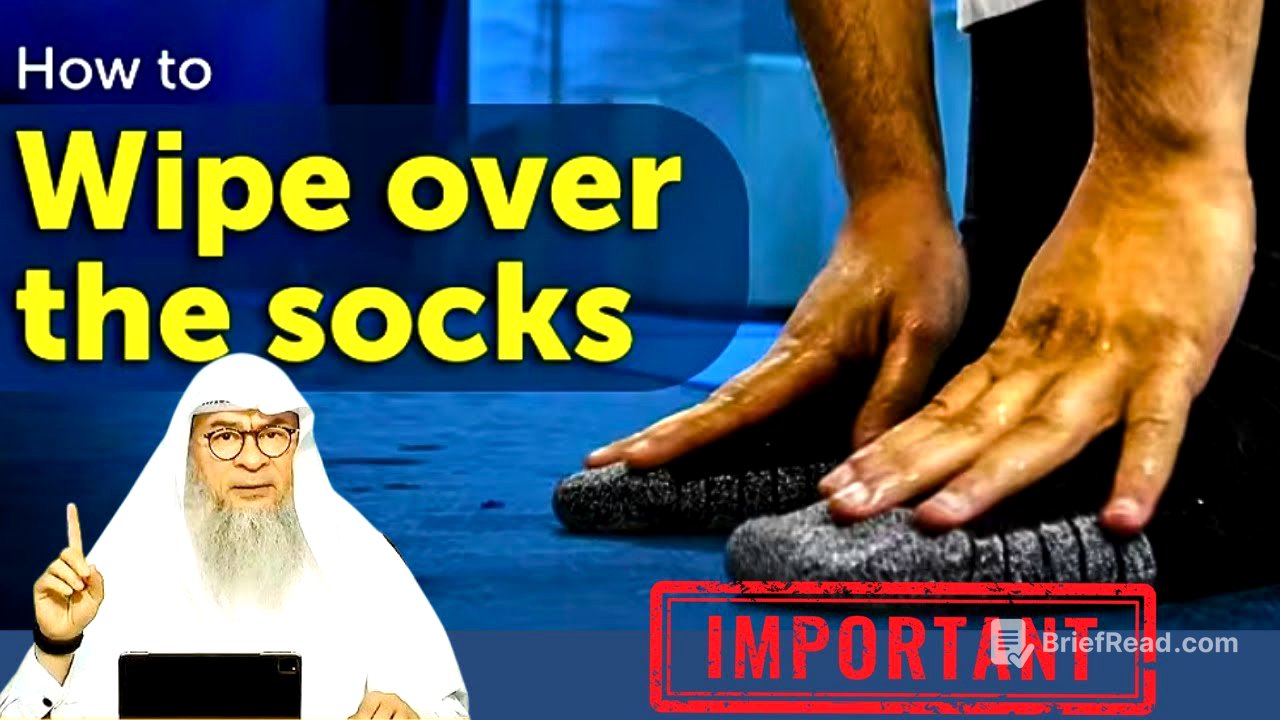TLDR;
The video explains the Islamic practice of wiping over socks or shoes (known as "wiping" in Arabic) during ablution (woodoo). It clarifies its validity according to Islamic scholars, particularly within the school of thought, and outlines the specific conditions that must be met to perform this act correctly. These conditions include wearing the socks or shoes after performing ablution, ensuring the material is permissible (halal), covering the feet and ankles, and adhering to the time limit for wiping (one day and night for residents, three days and nights for travelers).
- Wiping over socks or shoes is a valid practice in Islam under specific conditions.
- Key conditions include wearing socks/shoes after ablution, using halal materials, covering the ankles, and observing time limits.
- Residents can wipe for 24 hours, while travelers can wipe for 72 hours.
Introduction to Wiping Over Socks or Shoes [0:02]
The video addresses the question of whether it is permissible to wipe over socks or shoes during ablution (woodoo) instead of washing the feet. This practice, known as "wiping" in Arabic, is recognized in Islamic jurisprudence, particularly in the books of . Imam Ahmed narrated numerous hadiths supporting this practice, and scholars include it in their books to distinguish the of from those who reject it. The speaker confirms that this practice is valid and applicable under certain conditions.
Conditions for Performing Wiping [1:11]
The speaker outlines the conditions that must be met to correctly perform wiping over socks or shoes. First, the socks or shoes must be put on after performing a complete ablution (woodoo). This means that the individual must be in a state of purity when they put on the socks or shoes. Second, the material of the socks or shoes must be halal (permissible). For example, one cannot wear socks made of pig skin or the skin of dead animals. Third, the socks must cover the entire foot, including the ankles, which are normally washed during ablution. Finally, there is a time limit for wiping: a resident can wipe for one day and night (24 hours), while a traveler can wipe for three days and three nights (72 hours).









